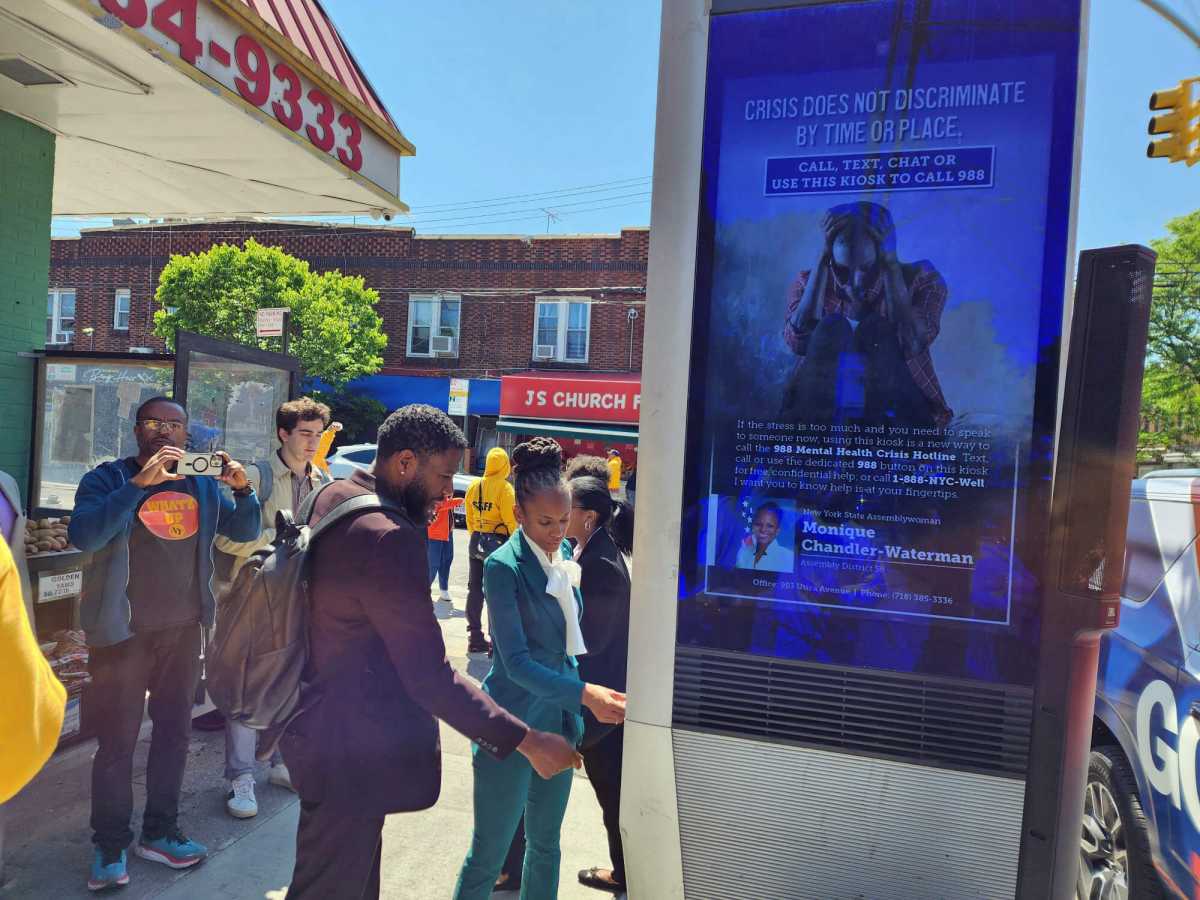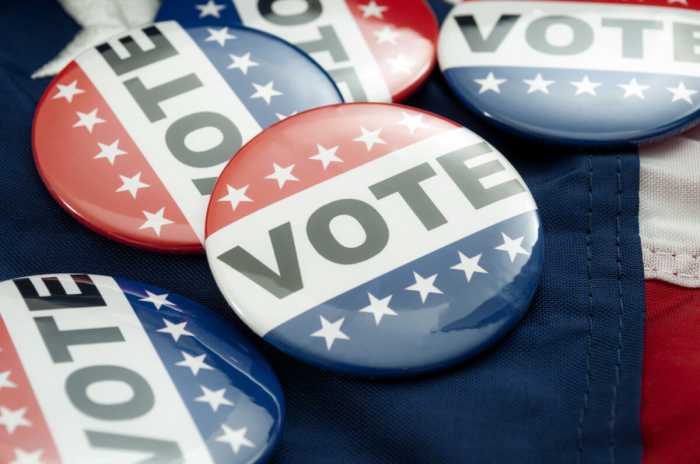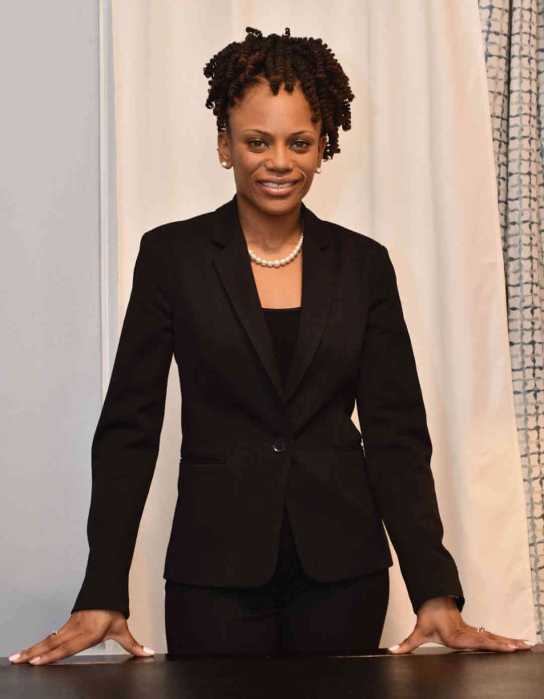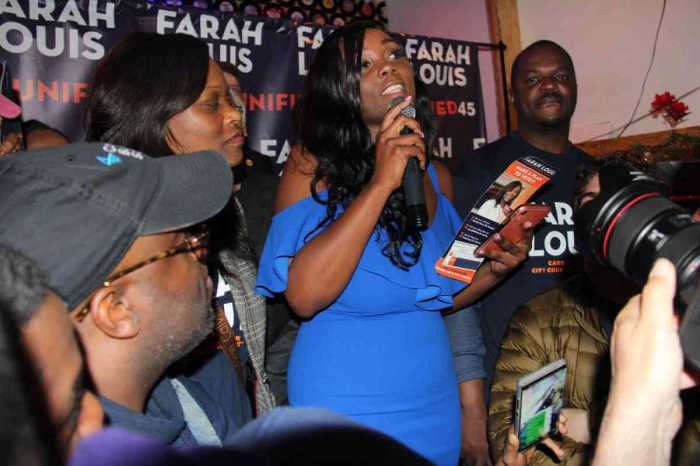New York State Assemblywoman Monique Chandler-Waterman, Assembly District 58 Mental Health Task Force and New York City Public Advocate, Jumaane Williams, as well as activists and community members on Thursday, May 25 closed out Mental Health Awareness Month with a rally to raise awareness about mental health resources followed by a community outreach event.
The event, held at the corner of East 48th Street and Church Avenue in Brooklyn, highlighted one of the newest ways to access 988, the crisis hotline that provides mental health support.
Chandler-Waterman, who represents the 58th Assembly District in Brooklyn, said she prompted the new initiative, and that LinkNYC embraced the idea.
“We have to use everything we can to educate the community about mental health and mental health resources,” she said. “LinkNYC embraced the idea of not only advertising 988 but went a step further to make it accessible on their kiosks around New York City.”
“LinkNYC’s mission is to ensure New Yorkers stay connected—not just to high-speed broadband, but also to community resources,” said Nick Colvin, LinkNYC CEO. “We’re proud to serve our neighbors by providing an easy and reliable way to access life-saving mental health services, no matter where they live. 988 is now just a tap away for anyone in our city who needs help with a mental health condition.”
“I’m proud someone like LinkNYC said they are going to join in to use whatever we can to not only push the number but to advertise it. What we need is for everyone to do what they can, with what they have and where they and we can really lift this up,” said Williams, the son of Grenadian immigrants, flanked by Chandler-Waterman and activists at the front of a LinkNYC kiosk. “It’s really important from Michelle Gold to Jordan Neely we’ve been failing on this front for a very long time.We need the infrastructure to address mental health issues”
Every person has some risk of developing a mental health condition, according to National Alliance on Mental Illness, regardless of who they are or where they come from.
Chandler-Waterman said risk factors like social and economic pressures, including homelessness, joblessness, or underemployment, and biological factors, like a family history of mental health conditions, make everyone vulnerable.
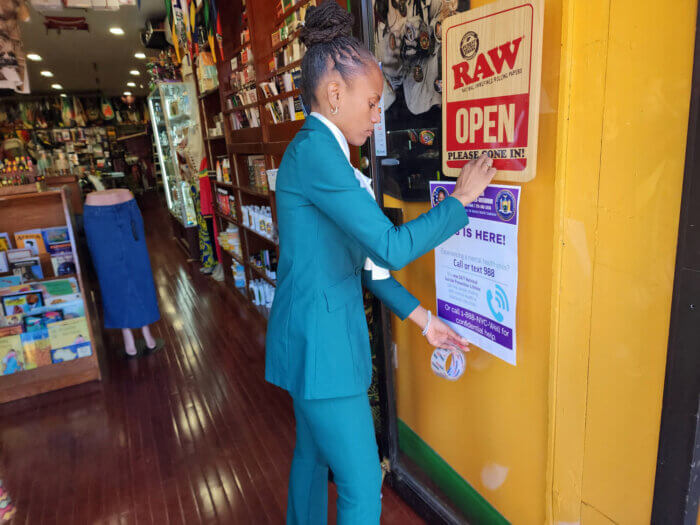
“I know personally, as a person living with a mental health condition, how crucial it is to have immediate access to mental health resources,” said Christina Sparrock, a long-time mental health advocate and peer specialist. “Using strictly 988 for a public health response will minimize interaction with 911 and connect people with person-centered, culturally responsive, and trauma-informed care. It’s about care, not criminalization.”
“The time to prepare for a mental health crisis isn’t during the mental health crisis. We have to build an infrastructure to use when and if the crisis should come, and 988 is that infrastructure,” said Chaka Phaire, a licensed clinical social worker who works with youth and is a member of the AD 58 Mental Health Task Force. “It offers a single point of access to anyone regardless of where they may be – whether that is from a level of concern to a full crisis. They will be matched to the services they need.”
“We all suffer from some form of anxiety or depression, and we just don’t realize it until it festers into broken mental health, so we have to pay attention to how we take care of ourselves mentally and physically,” said Al Mathieu, executive director of DRUM/BTTM, a CURE violence program that addresses violence in the community. His team members are regularly granted mental health days to help alleviate the stress of the often traumatic work they do daily.
“When we have a program like 988, it gives us equipment to address the problem. We can’t say the police came in to address the issue when had the opportunity to address is before we went into crisis, said Roderick Daly, head of Community Board 17, who talked about being intentional about mental health care. “I might look perfectly sane, but you don’t know what I’m going through or what my triggers are. Use 988 to help our community become better.”
“We have a lot of mental illness in our families. Some of us don’t want to talk about it, and we need help If you have a mental breakdown, come into the restaurant, and we will call 988,” said Doris Rodney, owner of The Hills Restaurant. “I’m going to brief my workers on 988 so they can help. We’ve been crying about this for a long time.”
“Sometimes a simple poster in a store window, a hairdresser or barber knowing what it can look like when someone is approaching crisis, or even encouraging someone to pick up the phone or tap one of these LinkNYC kiosks can turn a mental health crisis into an intervention,” said Chandler-Waterman,” who represents East Flatbush, and parts of Canarsie, Crown Heights and Brownsville.
She said the Assembly District 58 Task Force, a team of community volunteers – some with lived experiences – reach out to educators, small business owners at restaurants barber shops and hair salons, and faith leaders, all of whom can play a part because they know the community.
“We can make a real impact because the people on the ground in our community are trusted; they know our residents, have their eyes on our streets, and their cultural sensitivity makes a difference,” said Chandler-Waterman, stating that Black and Brown communities are disproportionately impacted by mental illness, because they lack resources and awareness of what is available.
For decades, she said she has joined advocates in the call for more and better mental health resources for the community, including peer specialists, mobile crisis units, respite centers, social workers, supportive housing, and mental health screenings at schools, clinics and doctor’s offices.
The assemblywoman said an estimated 18.57 percent of American adults – “45 million people that we know about – live with mental health conditions.
“We also know those numbers are rising, especially among our youth,” she said.
Jordan Neely, a known street performer who lived with mental health conditions, was killed by a passenger on a train during Mental Health Awareness Month.
Chandler-Waterman said his death highlighted the lack of understanding about mental health conditions and available resources, including ways to access 988, by calling, texting, chatting, or the newest way – locating the nearest LinkNYC kiosk. New Yorkers can also call 1-888-NYC-WELL for support.


